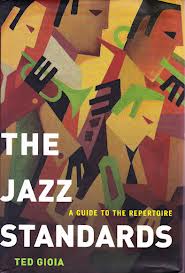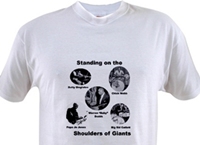
Up front, the scope of this book is purposely narrow. Mr. Gioia states that he picked songs that fans are likely to hear in performances (and musicians are likely requested to play). In that respect, if you compare the list of songs to, say, the contents of The Real Book: Sixth Edition, there are major differences. On the other hand, the format Gioia uses would turn an already thick, 554-page book into a multi-volume set rivaling encyclopedias had he attempted to be more inclusive.
What I love is the succinct format: discussion of the songs and list of recommended versions. The discussion almost always provides some technical detail, the history of the song, and - in some cases - interesting trivia. The recommended versions cite who, where and when. For example, for Turner's and Layton's 1918 masterpiece, After You've Gone, that is endearingly popular the first recommended version is listed as Marion Harris, Camden, New Jersey, July 22, 1918 (in this example the list contains ten recommendations, the latest of which is a 1995 recording.)
I'll explain why this book is indispensable to me. I am an amateur jazz historian who writes this blog as a hobby. A quick look at most of my posts shows that I focus on music and musicians in a much wider scope than just drummers. I also post a lot of music reviews on Amazon (among other products).
In the past researching was time consuming and discovering facts about not only songs, but recordings and discographies, could take hours. The Recommended Versions part of the format in this book has proven to be an incredible time saver. And the descriptions and anecdotal information this book provides give me insights that I can weave into my own writing.
For jazz aficionados this book is practically a concordance with some fascinating information tacked on. The index of this book is particularly helpful because it allows you to cross-reference songs, composers and musicians, and recordings.
If you write about jazz as a hobby or professionally this book is essential and I do not use that word lightly. The same goes for the few remaining jazz DJs. Historians and educators will also find this book invaluable. If you are a dyed-in-the-wool aficionado you'll probably get hours of pleasure from randomly picking songs or focusing on some of your favorites, or what is currently playing in the background.
The bottom line is if you are serious about jazz, this book should be on your bookshelf.



No comments:
Post a Comment